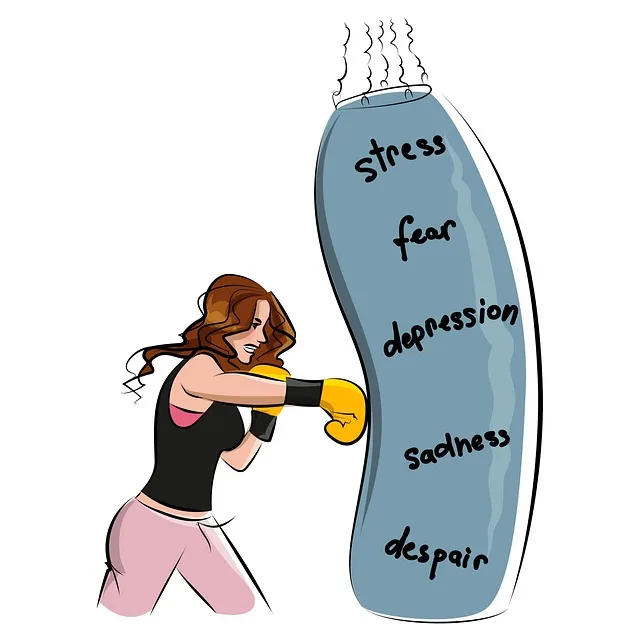According to Englewood Kaiser Permanente psychiatry reviews, preventing depression involves understanding key signs like persistent sadness, changes in appetite or sleep, and fluctuated energy. Lifestyle changes including regular exercise, balanced diets, and sufficient sleep are crucial. Coping skills development through mindfulness meditation, deep breathing exercises, and cognitive-behavioral therapy (CBT) also helps manage thoughts and emotions effectively. Combining these strategies with regular psychiatrist check-ins and professional support from organizations like Englewood Kaiser Permanente offers a holistic approach to mental health maintenance, backed by positive patient reviews. Public awareness campaigns destigmatize mental health conversations, encouraging early help-seeking.
Depression is a prevalent yet manageable condition. If caught early, it can be prevented from escalating. This article explores essential strategies to safeguard your mental health, as recommended by Englewood Kaiser Permanente psychiatry experts. From recognizing subtle signs and symptoms to adopting lifestyle changes that promote well-being, you’ll discover practical ways to take control. Additionally, we emphasize the critical role of professional support in prevention, highlighting resources available at Englewood Kaiser Permanente.
- Recognizing Early Signs and Symptoms of Depression
- Lifestyle Changes for Improved Mental Health
- The Role of Professional Support in Prevention
Recognizing Early Signs and Symptoms of Depression

Recognizing the early signs and symptoms of depression is a pivotal step in its prevention. According to Englewood Kaiser Permanente psychiatry reviews, individuals often experience a range of changes that signal a potential mental health challenge. These may include persistent feelings of sadness, hopelessness, or emptiness, along with significant changes in appetite, sleep patterns, and energy levels. The review highlights that emotional healing processes can begin when these signs are identified early.
Conflict resolution techniques and anxiety relief strategies play a crucial role in depression prevention. Engaging in open communication, practicing mindfulness, and adopting healthy coping mechanisms can help individuals navigate stressful situations without resorting to harmful behaviors or negative thought patterns. By addressing underlying conflicts and learning effective ways to manage anxiety, one can foster resilience and reduce the risk of developing depressive symptoms.
Lifestyle Changes for Improved Mental Health

Englewood Kaiser Permanente psychiatry reviews highlight the importance of lifestyle changes in mental health management. Adopting healthy habits like regular exercise, balanced diets, and sufficient sleep can significantly improve mood and overall well-being. Physical activity releases endorphins, which are natural chemicals in the brain that act as natural painkillers and mood elevators. Moreover, engaging in activities that bring joy and a sense of accomplishment bolsters self-esteem and enhances resilience to stress.
In addition to these physical adjustments, coping skills development and mind over matter principles play a crucial role in depression prevention. Learning techniques such as mindfulness meditation, deep breathing exercises, and cognitive-behavioral therapy (CBT) helps individuals manage their thoughts and emotions more effectively. By challenging negative thought patterns and adopting positive self-talk, one can improve mood management and build mental resilience. These strategies, combined with regular check-ins with Englewood Kaiser Permanente psychiatrists, offer a holistic approach to maintaining good mental health.
The Role of Professional Support in Prevention

Professional support plays a pivotal role in depression prevention strategies. Engaging with mental health professionals like those at Englewood Kaiser Permanente, as reviewed by many satisfied patients, offers structured and personalized care. Therapies such as cognitive behavioral therapy (CBT) have proven effective in identifying and modifying negative thought patterns, thereby reducing the risk of depressive episodes. Additionally, psychiatrists can prescribe evidence-based medications that target specific chemical imbalances in the brain known to contribute to depression.
Beyond individual treatment, public awareness campaigns focused on mental health development are crucial. These initiatives help destigmatize conversations around depression, encouraging individuals to seek help early. Mindfulness meditation and self-awareness exercises, frequently incorporated into therapy sessions, teach coping mechanisms that promote emotional resilience. By combining professional support with community efforts, we can create a supportive environment where prevention strategies are accessible and effective.
Preventing depression is a multifaceted approach, as evidenced by the strategies outlined in this article. Recognizing early signs and symptoms, implementing lifestyle changes that promote mental well-being, and seeking professional support are all crucial components of a comprehensive prevention plan. Engaging with resources like Englewood Kaiser Permanente psychiatry reviews can provide valuable insights into effective treatment options and reinforce the importance of proactive mental health management. Ultimately, by combining personal awareness and professional guidance, individuals can effectively navigate and overcome the challenges associated with depression.




